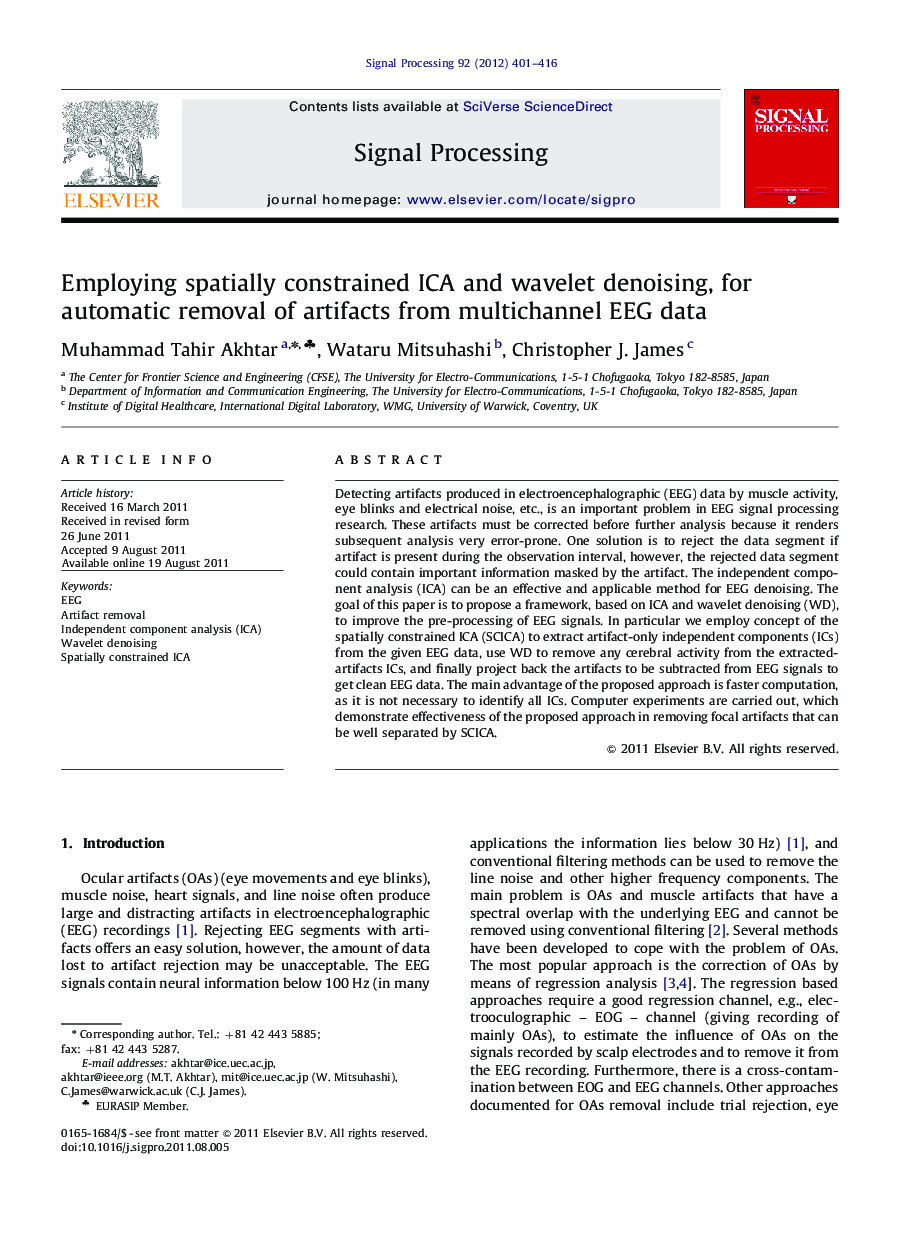| کد مقاله | کد نشریه | سال انتشار | مقاله انگلیسی | نسخه تمام متن |
|---|---|---|---|---|
| 561399 | 875302 | 2012 | 16 صفحه PDF | دانلود رایگان |

Detecting artifacts produced in electroencephalographic (EEG) data by muscle activity, eye blinks and electrical noise, etc., is an important problem in EEG signal processing research. These artifacts must be corrected before further analysis because it renders subsequent analysis very error-prone. One solution is to reject the data segment if artifact is present during the observation interval, however, the rejected data segment could contain important information masked by the artifact. The independent component analysis (ICA) can be an effective and applicable method for EEG denoising. The goal of this paper is to propose a framework, based on ICA and wavelet denoising (WD), to improve the pre-processing of EEG signals. In particular we employ concept of the spatially constrained ICA (SCICA) to extract artifact-only independent components (ICs) from the given EEG data, use WD to remove any cerebral activity from the extracted-artifacts ICs, and finally project back the artifacts to be subtracted from EEG signals to get clean EEG data. The main advantage of the proposed approach is faster computation, as it is not necessary to identify all ICs. Computer experiments are carried out, which demonstrate effectiveness of the proposed approach in removing focal artifacts that can be well separated by SCICA.
► This paper proposes an efficient approach for artifact removal from multichannel EEG data.
► It is based on spatially constrained ICA and stationary wavelet transform-based denoising.
► Spatially constrained ICA is used to extract only artifactual independent components (ICs).
► Stationary wavelet transform-based denoising is used to process extracted-artifact ICs.
► The main advantage is reduced computational time as compared with the existing approaches.
Journal: Signal Processing - Volume 92, Issue 2, February 2012, Pages 401–416